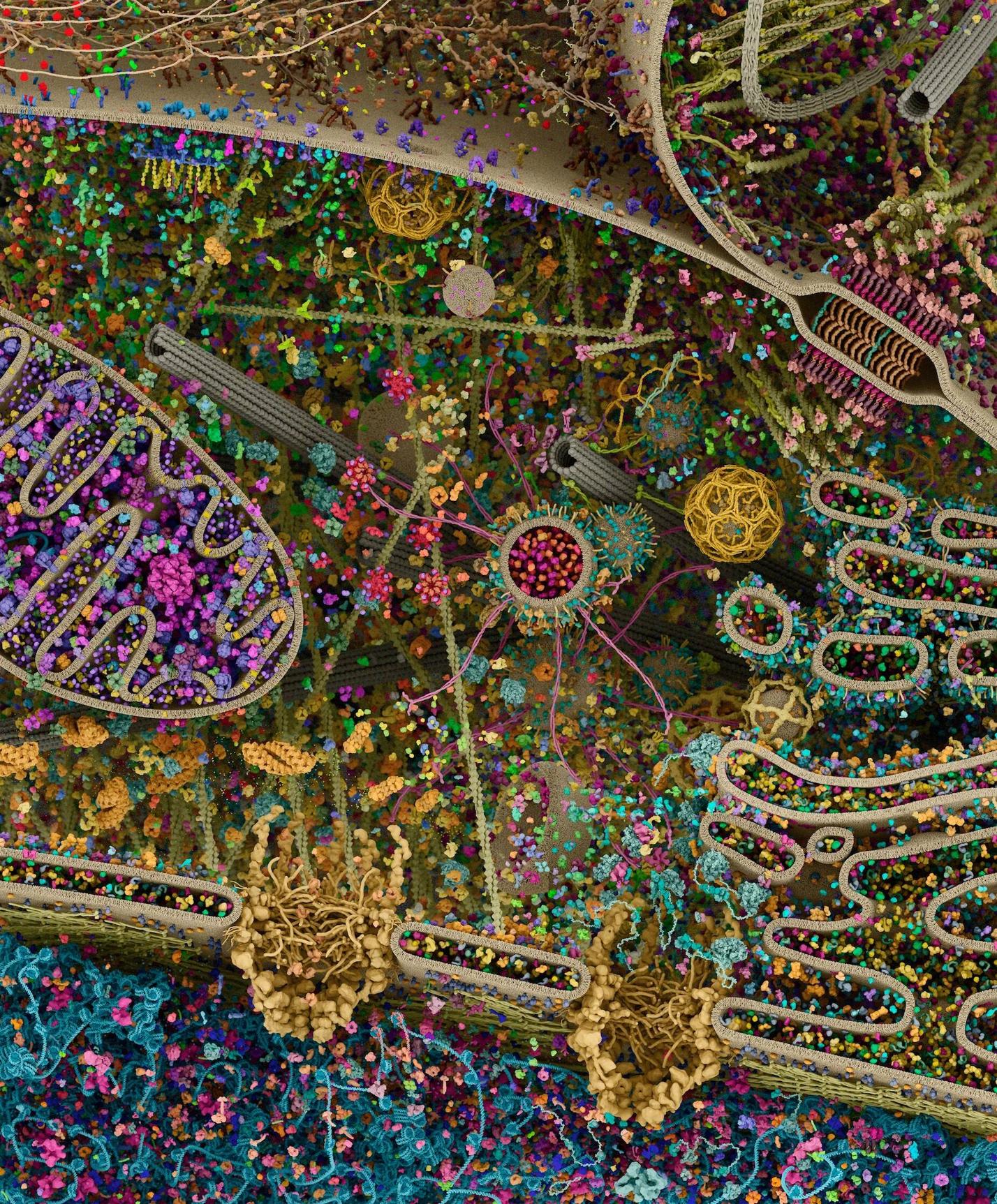The answer is, symmetry. Especially, not just the more familiar ones like symmetry under rotation or reflection, but continous symmetries.
The whole-number line is an abstraction of translational symmetry, and objects considered indistinguishable. Physics generally focuses on indistinguishable or barely so objects, like bosons and fermions, moving in space. Noether's Theorem tells us conservation laws are directly equivalent to statements about contnous symmetries under transformations - these are then elaborated into mathematics in general, with mathematical operators drawn from analogy to types of transformation.

Taken from Cellular Landscape Cross-Section Through A Eukaryotic Cell
In biology the relationships are more complex, because entropy increase means far-from-equilibrium systems are always involved so they change dynamically, through eating and waste plus energy flowing in. Meaning the symmetry across time-translation is always going to be incomplete. And just as chemistry involves much more composite structures than particle physics, so biology does than chemistry.
There are still spatial & time relationships with conserved symmetry in biology. Fractal relationships are often involved between layers of organisation, which are symmetries of fractional dimensions. And intersubjectivity depends on a partial 'indistinguishability', and it underlies communication & so compounding of conceptual abstractions, as discussed here: According to the major theories of concepts, where do meanings come from? But they are generally less common. In order to make analysis tractable, we create 'overlays' or heuristic-explanatory-layers, that group together or 'chunk' a lot of information. Knowing a persons character is generally a lot better way to predict them, than knowing the position and momentum of their constituents - small errors in initial position down even to from the Uncertainty Principle, or in calculations from that initial state, will rapidly make it useless; whereas we expect a lot of time-translation symmetry of the composite 'character', though of course, some change. We picture causes in the language of one of the layers: 'His temper caused -' etc. But we expect those to be reducible in principle to atoms (ie, compatibilism).
A way that we can think about how the sciences have been unifying, is that the symmetry underlying energy conservation, and the assymetry involved in entropy change and the Arrow of time, provide a 'language' to interface together and check the consistency of different areas of science, because of associated conservation laws. As discussed here: Is the idea that "Everything is energy" even coherent? It's important to note the slipperiness of 'reducible in principle': With perfect information we might be able to fully predict a mind, but that might require such a detailed model it would require making another copy of a persons brain, a functional one. That would mean irreducibility, in practice. And be a fundamental limit as such to abstracting complex phenomena into simpler forms (even if consciousness is digitised, and in a way 'mathematised').
When we gain insights using mathematics, it is often by identifying a symmetry property. Consider the ideal gas laws, which identify the relevant properties of interaction, and allow a lot of other data to be dropped. We have Effective Field Theories, manifestations of general theories that appear at particular length scales and with specific degrees of freedom. Comparably, we might find there is a set of predictable behaviours in some circumstances, like say laminar flow or a liquid, but unpredictable chaotic turbulant behaviour after some transition of interaction. You might call particle physics, chemistry and biology, different effective field theories seperated by transitions like that between laminar and turbulent flow, with difference that could described in general terms by how reducible the system ordering is.
Previous related discussions
About Wigner's view on the relation between mathematics and physics?
Does reality have axioms?

